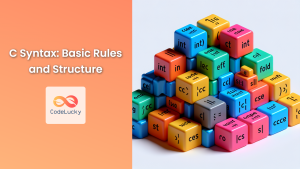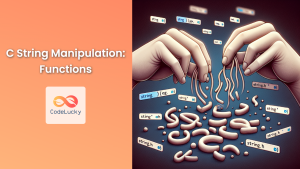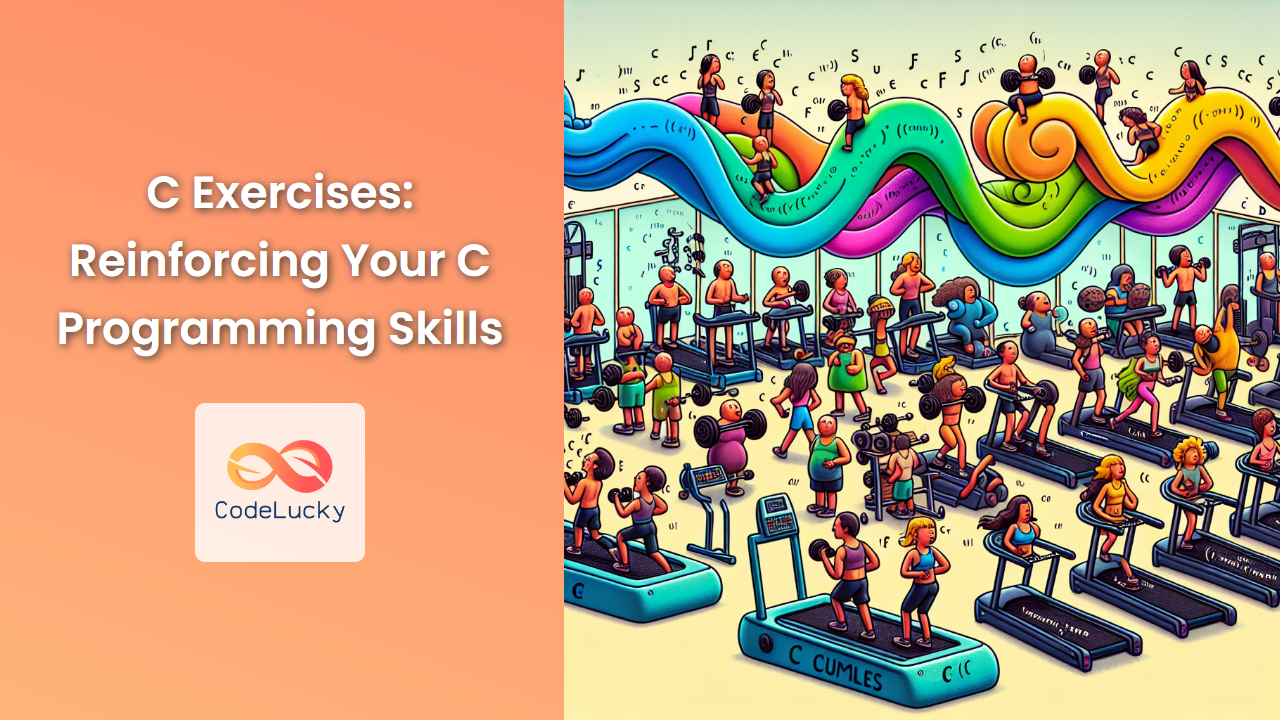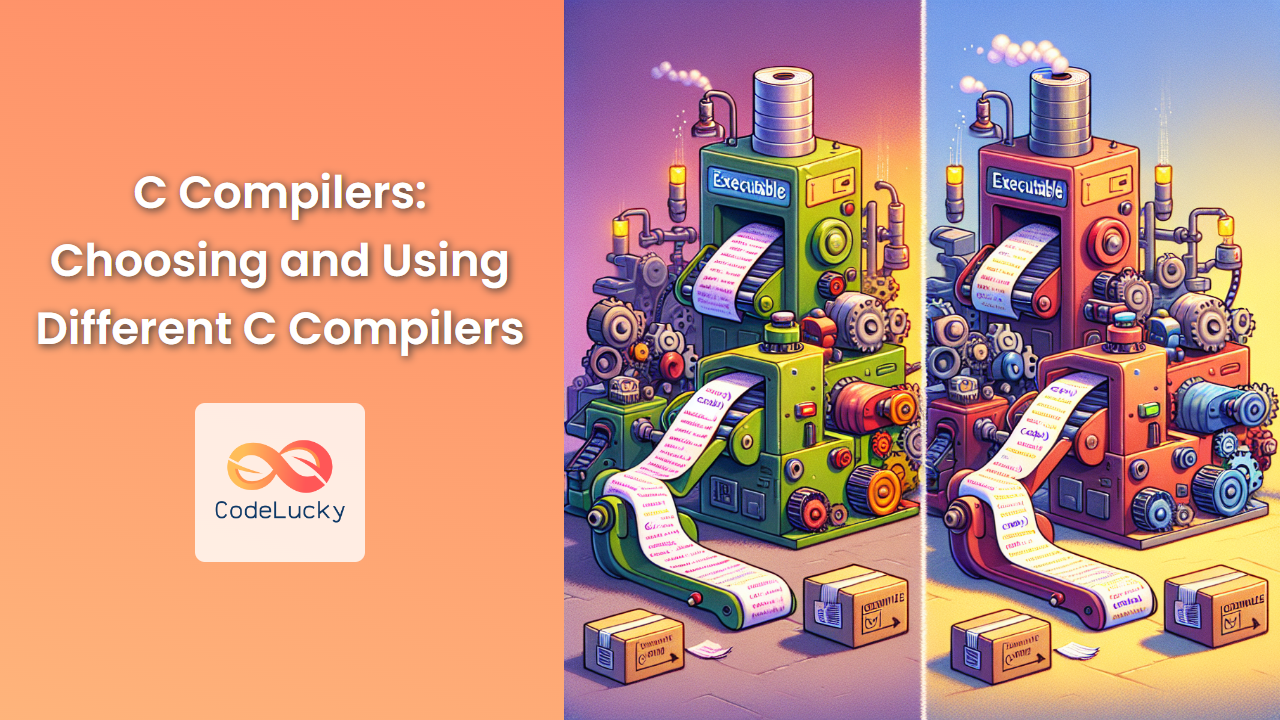Welcome to the fascinating world of C pointers! 🚀 In this comprehensive guide, we'll dive deep into one of the most powerful yet often misunderstood features of the C programming language. Pointers are the secret sauce that gives C its efficiency and flexibility, allowing for direct memory manipulation and advanced programming techniques.
What Are Pointers?
At its core, a pointer is simply a variable that stores the memory address of another variable. Think of it as a signpost pointing to a specific location in your computer's memory. 📍
Let's start with a basic example:
int x = 10;
int *ptr = &x;
Here, ptr is a pointer that stores the address of x. The & operator is used to get the address of x.
Declaring and Initializing Pointers
To declare a pointer, we use the asterisk (*) symbol before the variable name. The general syntax is:
data_type *pointer_name;
For example:
int *int_ptr; // Pointer to an integer
char *char_ptr; // Pointer to a character
float *float_ptr; // Pointer to a float
Let's see a complete program that demonstrates pointer declaration and initialization:
#include <stdio.h>
int main() {
int num = 42;
int *ptr = #
printf("Value of num: %d\n", num);
printf("Address of num: %p\n", (void *)&num);
printf("Value of ptr: %p\n", (void *)ptr);
printf("Value pointed to by ptr: %d\n", *ptr);
return 0;
}
Output:
Value of num: 42
Address of num: 0x7ffd5e8e3e44
Value of ptr: 0x7ffd5e8e3e44
Value pointed to by ptr: 42
In this example, we see how the pointer ptr stores the address of num, and we can access the value of num through ptr using the dereference operator *.
The Dereference Operator
The dereference operator * is used to access the value stored at the address held by a pointer. It's like saying, "Give me the value at this address."
Here's an example that demonstrates dereferencing:
#include <stdio.h>
int main() {
int x = 10;
int *ptr = &x;
printf("x = %d\n", x);
printf("*ptr = %d\n", *ptr);
*ptr = 20; // Changing the value through the pointer
printf("After modification:\n");
printf("x = %d\n", x);
printf("*ptr = %d\n", *ptr);
return 0;
}
Output:
x = 10
*ptr = 10
After modification:
x = 20
*ptr = 20
This example shows how we can modify the value of x indirectly through the pointer ptr.
Pointer Arithmetic
One of the powerful features of pointers is the ability to perform arithmetic operations on them. This is particularly useful when working with arrays or memory blocks.
Let's look at an example of pointer arithmetic:
#include <stdio.h>
int main() {
int arr[] = {10, 20, 30, 40, 50};
int *ptr = arr; // ptr points to the first element of arr
for (int i = 0; i < 5; i++) {
printf("Address: %p, Value: %d\n", (void *)ptr, *ptr);
ptr++; // Move to the next integer
}
return 0;
}
Output:
Address: 0x7ffd5e8e3e30, Value: 10
Address: 0x7ffd5e8e3e34, Value: 20
Address: 0x7ffd5e8e3e38, Value: 30
Address: 0x7ffd5e8e3e3c, Value: 40
Address: 0x7ffd5e8e3e40, Value: 50
In this example, we see how incrementing the pointer moves it to the next element in the array. Each increment adds 4 bytes (the size of an int) to the address.
Pointers and Arrays
In C, there's a close relationship between pointers and arrays. In fact, the name of an array is essentially a pointer to its first element.
Let's explore this relationship:
#include <stdio.h>
int main() {
int arr[] = {1, 2, 3, 4, 5};
int *ptr = arr;
printf("Using array notation:\n");
for (int i = 0; i < 5; i++) {
printf("%d ", arr[i]);
}
printf("\nUsing pointer notation:\n");
for (int i = 0; i < 5; i++) {
printf("%d ", *(ptr + i));
}
return 0;
}
Output:
Using array notation:
1 2 3 4 5
Using pointer notation:
1 2 3 4 5
This example demonstrates that we can access array elements using both array notation (arr[i]) and pointer arithmetic (*(ptr + i)).
Pointers and Functions
Pointers are often used with functions, either to modify variables in the calling function or to handle large data structures efficiently.
Here's an example of using pointers to swap two numbers:
#include <stdio.h>
void swap(int *a, int *b) {
int temp = *a;
*a = *b;
*b = temp;
}
int main() {
int x = 10, y = 20;
printf("Before swap: x = %d, y = %d\n", x, y);
swap(&x, &y);
printf("After swap: x = %d, y = %d\n", x, y);
return 0;
}
Output:
Before swap: x = 10, y = 20
After swap: x = 20, y = 10
In this example, the swap function takes pointers as arguments, allowing it to modify the original variables in the main function.
Common Pitfalls and Best Practices
While pointers are powerful, they can also be a source of bugs if not used carefully. Here are some common pitfalls to avoid:
- Uninitialized pointers: Always initialize pointers before using them.
int *ptr; // Uninitialized pointer - BAD!
*ptr = 10; // This could cause a segmentation fault
int x = 10;
int *ptr = &x; // Properly initialized pointer - GOOD!
- Null pointer dereference: Always check if a pointer is NULL before dereferencing it.
int *ptr = NULL;
if (ptr != NULL) {
*ptr = 10; // Safe, we checked first
} else {
printf("Pointer is NULL\n");
}
- Dangling pointers: Be careful not to use pointers that point to memory that has been freed.
int *ptr = malloc(sizeof(int));
free(ptr);
// ptr is now a dangling pointer
*ptr = 10; // BAD! This could cause undefined behavior
ptr = NULL; // GOOD! Nullify the pointer after freeing
Advanced Pointer Concepts
As you become more comfortable with basic pointer operations, you can explore more advanced concepts:
- Pointers to pointers: These are variables that store the address of a pointer.
int x = 10;
int *ptr = &x;
int **ptr_to_ptr = &ptr;
printf("Value of x: %d\n", **ptr_to_ptr);
- Function pointers: These allow you to store and invoke functions dynamically.
int add(int a, int b) { return a + b; }
int subtract(int a, int b) { return a - b; }
int main() {
int (*operation)(int, int);
operation = add;
printf("Result of add: %d\n", operation(5, 3));
operation = subtract;
printf("Result of subtract: %d\n", operation(5, 3));
return 0;
}
- Void pointers: These are generic pointers that can point to data of any type.
void *generic_ptr;
int x = 10;
float y = 20.5;
generic_ptr = &x;
printf("Integer value: %d\n", *(int *)generic_ptr);
generic_ptr = &y;
printf("Float value: %.1f\n", *(float *)generic_ptr);
Conclusion
Pointers are a fundamental concept in C programming, providing powerful capabilities for memory manipulation and efficient code. While they can be challenging to master, understanding pointers is crucial for becoming a proficient C programmer.
Remember, with great power comes great responsibility! 🦸♂️ Always be mindful of memory management and potential pitfalls when working with pointers. Practice regularly, and soon you'll be wielding pointers like a pro!
Happy coding! 💻🚀



















